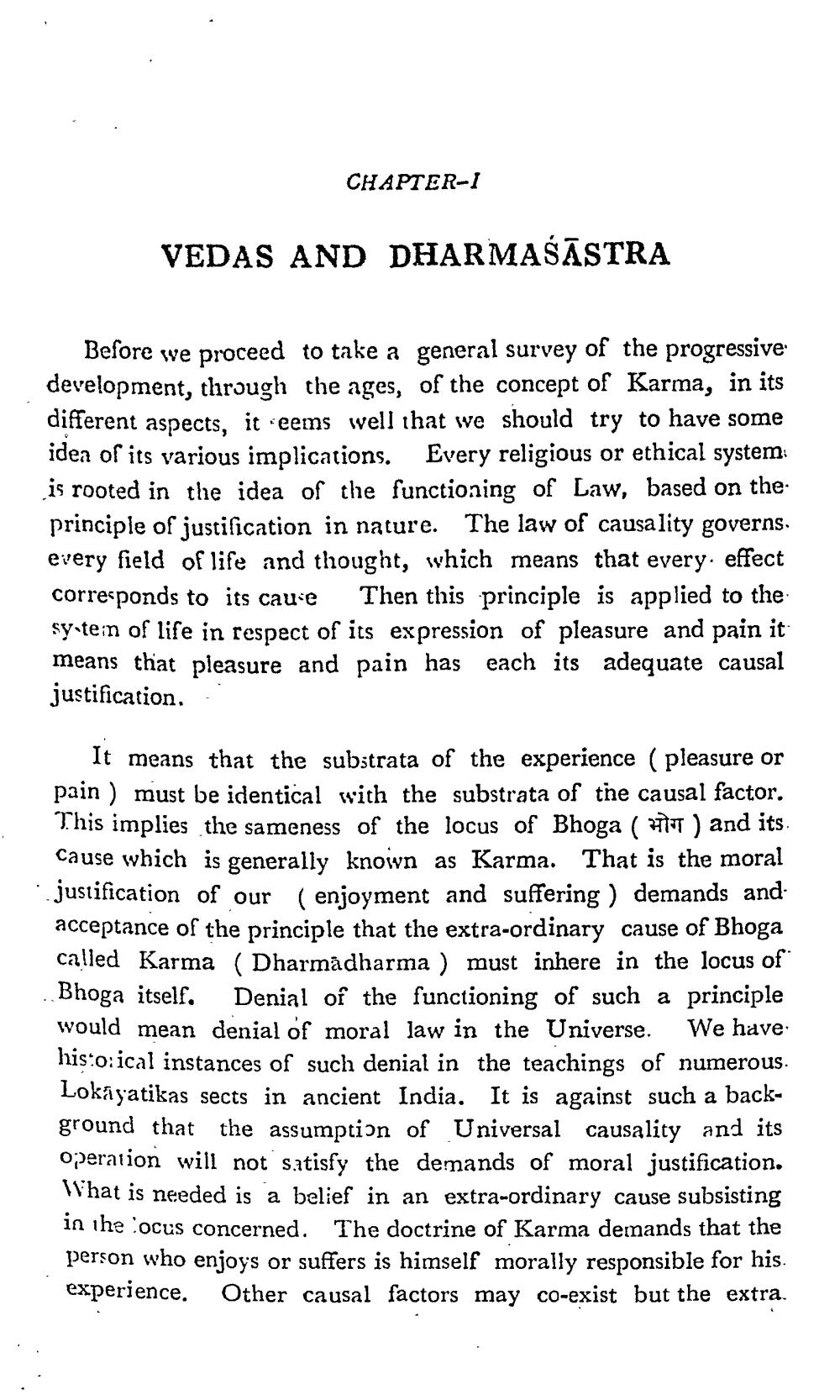________________
CHAPTER-1
VEDAS AND DHARMASASTRA
Before we proceed to take a general survey of the progressive development, through the ages, of the concept of Karma, in its different aspects, it seems well that we should try to have some idea of its various implications. Every religious or ethical system is rooted in the idea of the functioning of Law, based on the principle of justification in nature. The law of causality governs. every field of life and thought, which means that every effect corresponds to its cause Then this principle is applied to the system of life in respect of its expression of pleasure and pain it means that pleasure and pain has each its adequate causal justification.
It means that the substrata of the experience (pleasure or pain) must be identical with the substrata of the causal factor. This implies the sameness of the locus of Bhoga ( π ) and its Cause which is generally known as Karma. That is the moral justification of our ( enjoyment and suffering) demands and acceptance of the principle that the extra-ordinary cause of Bhoga called Karma (Dharmadharma) must inhere in the locus of Bhoga itself. Denial of the functioning of such a principle would mean denial of moral law in the Universe. We have historical instances of such denial in the teachings of numerous. Lokayatikas sects in ancient India. It is against such a background that the assumption of Universal causality and its operation will not satisfy the demands of moral justification. What is needed is a belief in an extra-ordinary cause subsisting in the locus concerned. The doctrine of Karma demands that the person who enjoys or suffers is himself morally responsible for his experience. Other causal factors may co-exist but the extra.




